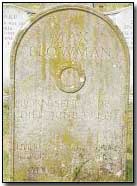Prose & Poetry - Max Plowman
 Max Plowman (1883-1941), who served during World War One, wrote a classic
memoir of his wartime experiences, A Subaltern on the Somme and was
opposed to a continuation of the war from early 1917.
Max Plowman (1883-1941), who served during World War One, wrote a classic
memoir of his wartime experiences, A Subaltern on the Somme and was
opposed to a continuation of the war from early 1917.
Having already begun to establish himself as a Romantic poet by 1914, Plowman's war began on Christmas Eve 1914 when he reluctantly signed up with the Territorial Field Ambulance. From the very first Plowman was opposed to the war but felt obliged to play a role.
Plowman served on the Western Front and included a spell on the Somme; indeed it was while sited at Albert, close to the Somme battlefield, that he suffered concussion when he was affected by an exploding shell.
Deemed to be suffering from shell shock Plowman was sent home to England to recover at Bowhill Auxiliary. While recovering Plowman continued with his writing, and prepared two books for publication, A Lap Full of Seed (a poetry collection) and an anonymous polemic directed against a continuation of the war, The Right to Life.
Like Sassoon before him Plowman determined to commit an act of defiance against the war. Having been granted a further month's home service in January 1918 he nevertheless wrote to his battalion's adjutant and asked to be relieved of his commission on grounds of his conscientious objection.
Duly arrested and confined to his quarters Plowman was formally court-martialed in April 1918 and subsequently dismissed the army, although he was fortunate to avoid prison.
After the armistice of November 1918 Plowman joined the Peace Pledge Union run by Dick Sheppard. He co-founded the Adelphi Centre at The Oaks in 1934, a communal group whose residents shared its daily tasks and responsibilities. From 1937-38 he served as the organisation's secretary.
In the late 1920s his wartime memoir, A Subaltern on the Somme, was published under the pseudonym Mark VII. Max Plowman died in 1941 and is buried in Langham churchyard in Essex (see above photograph).
"Bellied" was a term used to describe when a tank's underside was caught upon an obstacle such that its tracks were unable to grip the earth.
- Did you know?
